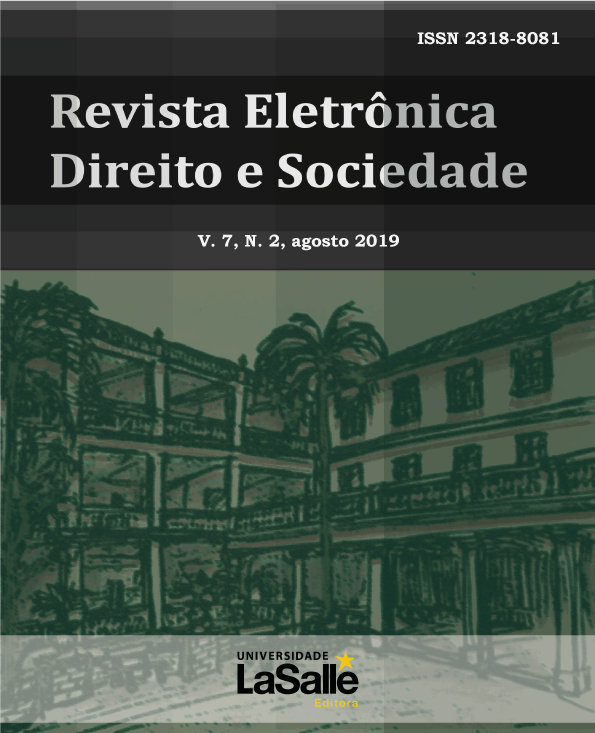The slab real estate right: between surface rights and the new democratic face of property right
DOI:
https://doi.org/10.18316/redes.v7i2.5578Keywords:
Slab Real Estate Right, Brazilians Slum, Urban Law, State Law 13.465/2017.Abstract
The State Law 13.465/2016 has introduced the slab right into the brazilian legal system. By one hand, it was celebrated as it fulfills promises of more social equality; by the other hand, it made part of the doctrine worried as they didn´t knew how to categorize the nature of the new positive right. This paper analyses the factual causes that made the slab right a new kind of real estate right, as well its social history and practice before the state law in question. After studying the dogmatical of the legislation in analyses, the paper points the main theme questions, emphasizing relevant cases. The essential crux chosen was the need to find the origin of the slab right, distinguishing and finding connections between the development right and the property right. That said, as an attempt to calm down the theoretical disquiet, it was pointed the main arguments from both sides. Nevertheless, in the end, it concludes for better use of the slab right as a kind of property right, mostly because of its goals to legalize vulnerable homeland, due to its factual approach between reality and the law, and considering the free use of land guaranteed by property right. From the strongest arguments in defense of slab right as a kind of property right, stand out (i) the facilities of daily use by the owners; (ii) the plenty fruition of all powers of property right (to use, to take profit, to renounce); (iii) the presence of a single property document; (iv) a legal safety for slab owners, guaranteeing economic stability; and at last (v) the close understanding between social facts and the law.
Downloads
Published
Issue
Section
License
Authors who submit their manuscripts for publication in the “REDES” Magazine agree to the following terms:
The authors claim to be aware that they retain copyright by giving “REDES” the right to publish.
The authors declare to be aware that the work submitted will be licensed under the Creative Commons Non-Commercial Attribution License which allows article sharing with acknowledgment of authorship and publication in this journal.
The authors declare to be aware that by virtue of the articles published in this journal have free public access.
The authors declare, under the penalty of the law, that the text is unpublished and original and that they are aware that plagiarism has been identified, plagiarized authors will be informed - willingly, to take legal action in the civil and criminal sphere - and, plagiarists will have their access to the magazine blocked.
The authors state that - in case of co-authoring - all contributed significantly to the research.
Authors are obliged to provide retractions and (or) corrections of errors in case of detection.
The authors are obliged not to publish the text submitted to “REDES” in another electronic journal (or not).
The Electronic Journal Law and Society - REDES - is licensed under a Creative Commons License. Attribution-NonCommercial 4.0 International.Based on work available at "http://revistas.unilasalle.edu.br/index.php/redes/about/submissions#copyrightNotice".
Permissions in addition to those granted under this license may be available at http://creativecommons.org/.

